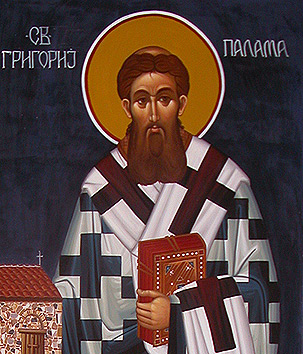Sunday of Saint Gregory Palamas
(
14.03.2009
)

O light of Orthodoxy,
teacher of the Church, its confirmation,
O ideal of monks and
invincible champion of theologians,
O wonder-working Gregory,
glory of the Holy Mountain and preacher of grace,
always intercede before the Lord
that our souls may be saved.
(Hymn of Saint Gregory Palamas)
This hymn dedicated to Saint Gregory Palamas, the Orthodox Church chants in the services on the Second Sunday of the Great Lent. It was dedicated to the man, who performed scientific synthesis of hesychasm, that old tradition of the contemplative monasticism in the Eastern Church, several decades before the fall of
The Eastern monasticism has had a long history, much before Gregory Palamas. The great teachers left an abundant number of written works. It survived vast trials and hard times. Among the contemporaries of Palamas, the monasticism had enormous reputation, and Palamas himself, accepted its full inheritance unreservedly. The work of Gregory Palamas accented and underlined the permanent doctrinarian and spiritual elements of monasticism, exactly in the moment when the spirit of renaissance entered in the
The work of Gregory Palamas resolved all such dilemmas. Thus, the victory of his teachings in the Byzantine’s 14th century, Orthodox Church takes not as a triumph of some particular mysticism but as a victory of Orthodoxy itself. The confirmation of the teachings of St. Gregory Palamas in the Church, aroused by a pure monastic tradition, has eternal and universal value.